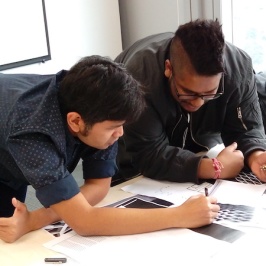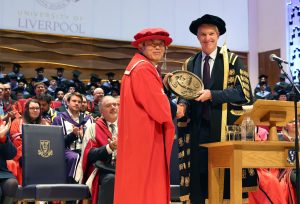February 2026 / September 2026
Part time
36 months
Suzhou
Design School
This programme leads to a University of Liverpool degree which is recognised by Ministry of Education, China.
Knowledge and Skills
MSc International Professional Practice in Architecture will enable a student to understand:
- the architectural profession and the responsibilities to clients, employers, and society;
- the economic, socio-political and ethical influences of professional practice internationally;
- the fundamental skills in the delivery of projects;
- various construction processes and activities in the delivery of projects, with a focus on life cycle, health and safety, and project planning;
- the importance of business development and planning;
- organisational behaviours and people management theories;
- the principles of financial management in business;
- the designs that meet building user needs and comply with necessary legislation;
- sustainability rating systems and design methodologies on the basis of sustainability and life cycle.
Graduates from this programme will have the opportunity to develop and enhance the professional, business and inter -personal skills necessary in professional practice, with a view to offering individual career development and taking up leadership responsibilities.

John Latto
Programme director
Modules
*Programme modules listed are illustrative only and subject to change. XJTLU students are advised to log in to the e-Bridge Portal to view the effectuated module structure.
Semester 1
Semester 2
Semester 3
Semester 5
Semester 6
Semester 3
Semester 4
The module structure with part-time is lasting over five semesters. Exit awards are possible at PG Dip and PG Cert. Places on modules are subject to availability.
The University offers a wide range of activities aiming to enrich master students’ theoretical and experiential learning and professional development. Training, workshops, and seminars, covering varieties of themes and topics, both generic and subject-specific, are often offered at both university and school/department levels. It also provides students with opportunities to work as a teaching assistant, research assistant, or intern at XJTLU. Depending on the programme, they may also organize field trips and company visits, and invite industry experts and professionals to give talks. Such activities will not only support you in your programme study but also develop your personal and professional skills and enhance your overall employability.
Careers
Although the programme does not lead to professional accreditation, it can enhance individual career development and help them take up more leadership responsibilities in practice. In addition, the programme provides networking opportunities with other multi-disciplinary professionals.








Overview
This programme will be delivered with full time and part-time access, allowing architectural practitioners to develop professional and inter-personal skills, take increased leadership roles, engage in entrepreneurial activities, and develop their knowledge in International contemporary practice. The programme will be facilitated by the Design School and other Schools and Departments, including International Business School Suzhou (IBSS) and School of Humanities and Social Sciences.
Bringing a diverse selection of modules, the programme aims to provide a unique experience tailored for individual educational needs.
There will be no pre-requisite order on the optional modules. However, the candidates would be expected to complete the programme within 18 months (full-time and 36 months (part-time))
The programme can also:
The programme will provide a range of teaching activities including lectures, seminars, coursework, discussion forums, individual work and independent group work, to suit the diverse topics covered. They will enable students to engage with real world scenarios.